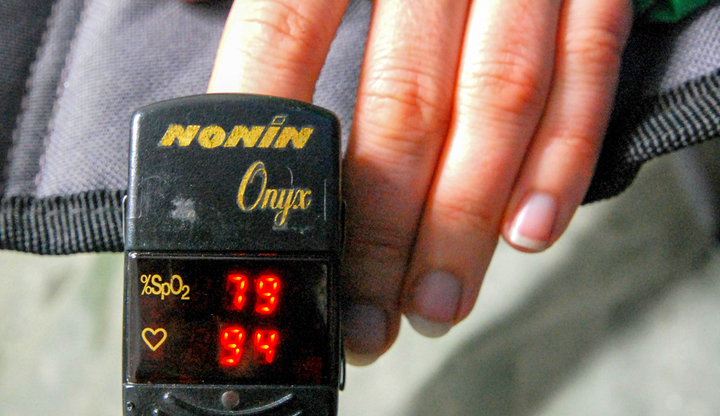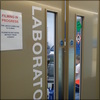Royal Society launches primary school science experiments videos
At the end of last year, CASE Medicine was invited to participate in filming a segment for the Royal Society new series of videos for the Brian Cox School Experiments. The videos, along with written resources are aimed at Key Stage 2 (7 - 11 years old) and look at real life activities across the science curriculum.
The CASE segment looks at the work of Xtreme Everest who research into Hypoxia (lack of oxygen) reaching the body's vital organs which is a common problem for patients in intensive care. They conduct experiments on themselves and other volunteers at high altitude and in chambers in order to develop novel therapies to improve the survival rates, and long-term outcomes, of their patients. The oxygen levels high in the mountains are similar to those experienced by patients in intensive care.
Filming took place at the Institute of Sport, Exercise and Health (ISEH) where part of the team are based. Xtreme Everest investigators, Dr Daniel Martin and Kay Mitchell participated in the experiment to show some of the testing we undertook in Nepal and what we found.
CASE Medicine and Xtreme Everest are proud to be involved with this work and look forward to inspiring the next generation of scientists and researchers.
You can find our segment here
For further information about the videos, please read the Royal Society press release below.
Royal Society launches primary school science experiments videos with Professor Brian Cox
The Royal Society has joined forces with Professor Brian Cox, the Society’s Professor of Public Engagement, to help primary school teachers across the UK to introduce creative experimental science lessons into their classrooms. A set of six videos and written resources - Brian Cox School Experiments - aimed at Key Stage 2 students (age 7-11 years) are available from today (21 February 2017) on the Royal Society’s website and YouTube channel, the STEM Learning resources page and shortly on the Times Education Supplement (TES) resources pages.
The experiments covered in the videos encourage youngsters to investigate a series of real-life activities across biology, chemistry and physics and are relevant to the curriculum across England, Northern Ireland, Scotland and Wales. They tackle topics such as working out how to clean dirty water; investigating whether plants need soil to grow; learning how exercise affects heart rate and why different types of chocolate have different melting points; figuring out how to change the pitch and volume of a sound with instruments made in the classroom and identifying what factors affect the size of shadows.
Each set of videos focuses on one experiment and features two teacher facing videos and two student videos for use in the classroom. The teacher facing videos feature Professor Brian Cox alongside a teacher who shares their experience of setting up and carrying out the experiments and their advice for overcoming some of the common difficulties that can occur. The videos for students illustrate the real life context for the experiments that they are working on, for example a visit to the Thorntons factory in Derby links to the experiment investigating the melting point of chocolate and a look inside an urban hydroponics farm that grows lettuces reveals that plants don’t always need to grow in soil. Real life scientists in their labs carrying out more advanced examples of the students’ experiments also feature.
Professor Brian Cox, Professor for Public Engagement, says, “I have been delighted to be involved in filming these video resources, travelling around the country and meeting teachers and pupils who are inspired by science and involved in exciting, practical science in the classroom. If we want to produce the scientists and engineers of tomorrow, we need to inspire young people by putting creative experimentation at the heart of the science curriculum. We hope that these videos will be a useful resource that will help teachers who might not have a science background to feel confident to deliver practical science in the classroom.”
Adds teacher and science coordinator Sophie Donovan from Britannia Village Primary School in London, and one of the teachers featured in the video resources, “These resources will offer a clear explanation and demonstration of an outstanding science lesson. We hope that this will encourage Newly Qualified Teachers and less confident teachers, to take more risks and enjoy teaching science week in, week out. The filming process was extremely interesting and exciting for me, and the children thoroughly enjoyed partaking in this fantastic event.”
Notes:
- The Royal Society is a self-governing Fellowship of many of the world’s most distinguished scientists drawn from all areas of science, engineering, and medicine. The Society’s fundamental purpose, as it has been since its foundation in 1660, is to recognise, promote, and support excellence in science and to encourage the development and use of science for the benefit of humanity.
- For further information please visit their website. Follow the Royal Society on Twitter or on Facebook
- More information about the Royal Society’s calendar of public events is available here
Share this :


 Royal Society Film
Royal Society Film


